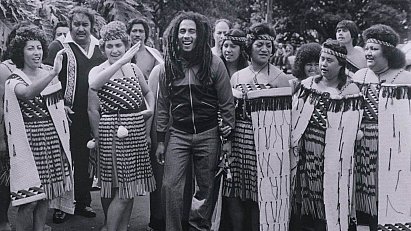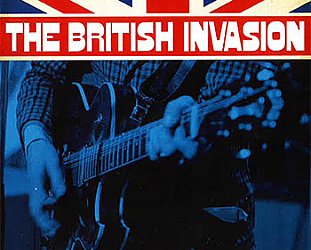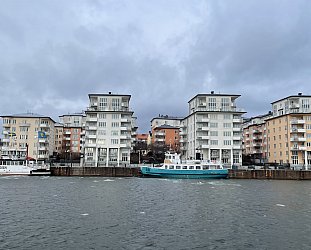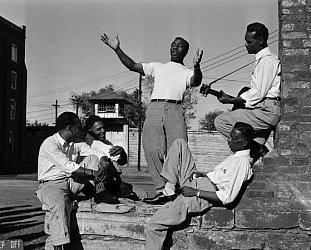Graham Reid | | 2 min read

Although New Zealand has seen many great and memorable concerts, few – aside from the Beatles in 1964 – have changed the landscape of music and culture in this country.
But the Auckland appearance by Bob Marley and the Wailers on April 16 1979 at Western Springs (tickets $8.70) before a peaceful and diverse crowd of 22,000 arrived at the end of a volatile decade.
The nation had seen the rise of Māori activism and Ngā Tamatoa, dawn raids, Polynesian Panthers, the 1975 hikoi protesting the confiscation and loss of traditional Māori land, and the occupations of Bastion Point (Takaparawhau) in Auckland and the Raglan Golf Course.
It was a decade of street protest and dissent, and the 81 Springbok Tour was just around the corner.
As Tigilau Ness – the former Panther who became a Rastafarian reggae musician after Marley's appearance and is the father of Che Fu – says “the concert was a reggae revolution, and we were just primed for revolution then”.
At times Marley seemed like an Old Testament prophet and at others a playful musician with a message of unity under a “Rastaman vibration”.
But he also spoke to, and for, the dispossessed, marginalised and disenfranchised in songs like the timely Get Up Stand Up “stand up for your rights”.
Over six half-hour programmes When Bob Came looks at the socio-political context of the time, how reggae was adopted here as political vehicle, Rastafarian culture in Aotearoa, marijuana (used as a sacrament in the Rastafarian faith) and the emergence of cultural pride in subsequent years.
It is introduced by actor James Rolleston (Boy, The Dark Horse, Whina) who – born almost 20 years after the concert – admits Marley seemed like a myth or a legend to him.
The articulate cast of talking heads includes Anika Moa, Troy Kingi, DLT (Darryl Thompson), concert security promoter (and later Herbs' manager) Hugh Harawira Lynn, writer/director Oscar Kightley, photo-journalist Murray Cammick of Rip It Up, Che Fu and activist/lawyer Pania Newton who was spokesperson for the recent occupation of land at Ihumātao.
All of them -- and members of Herbs, Katchafire, 12 Tribes of Israel and Trinity Roots -- attest to the impact of Marley and his music.
The series incorporates film of the group's arrival and the pōwhiri at the White Heron Lodge in Parnell, concert and TVNZ footage, and Marley playing soccer with television journalist Dylan Taite who managed to get a rare, lengthy interview.
 When Bob Came covers familiar ground much essayed and discussed over the decades. But through interviews with contemporary artists it speaks to an audience less familiar with the tenor of the times.
When Bob Came covers familiar ground much essayed and discussed over the decades. But through interviews with contemporary artists it speaks to an audience less familiar with the tenor of the times.
Marley's music had been widely popular from the mid 70s but the concert convinced local musicians that reggae and politics were entwined. Bands like Herbs, Aotearoa, Dread Beat and Blood, Sticks and Shanty, Unity Pacific and others emerged with lyrics pertinent to the struggles in this country, although a few adopted the language and back-to-Africa concerns of Jamaican and Black British reggae artists.
It's overstating that Marley's music and influence is “perhaps greater than it has ever been as new generations embrace Bob's music” as Rolleston asserts.
But certainly reggae itself is integral to popular music in Aotearoa as heard in L.A.B, Six60, SWIDT, Melodownz, Lost Tribe, House of Shem, Fat Freddy's Drop and others.
Time often smooths out the contradictions and complexities of an artist's life and work. If a young audience thinks of John Lennon at all today it would be for Imagine and Give Peace a Chance, not the angry Gimme Some Truth or insistent street-chant Power to the People.
So it is with Marley and the reggae he spearheaded. This rebel music has frequently been diluted into vague and inoffensive platitudes about aroha and whānau.
If When Bob Came helps relocate Marley's messages of love and resistance politics back into the korero, a new audience would see the link between the occupations at Takaparawhau and Ihumātao, the dignity in Get Up Stand Up, the universal message of War and the unifying, timeless joy in One Love, Lively Up Yourself and Could You Be Loved.
.
WHEN BOB CAME. TVNZ+ from Monday, February 6
.
There is a considerable amount about Bob Marley at Elsewhere, including essays on his impact in Aotearoa New Zealand. Start here.





post a comment